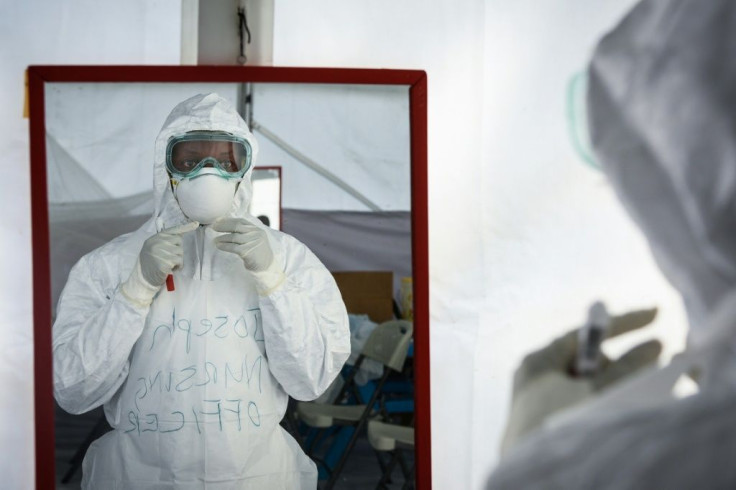Congo Records First Coronavirus Case Just As Latest Ebola Epidemic Ends

KEY POINTS
- Sub-Saharan Africa has so far beenh spared a coronavirus outbreak
- Congo has had ten Ebola outbreaks since 1976
- Congo recorded its first coronavirus case
The Democratic Republic of Congo, or DRC, reported its first case of coronavirus on Tuesday, a Congolese citizen who lives in France and returned to DRC on March 8 with no symptoms of the virus.
However, another report stated the patient is a Belgian citizen.
Health Minister Eteni Longondo said the patient and others accompanying him have been placed in quarantine.
“What I’d like to tell people is not to panic,” Longondo added.
Sub-Saharan Africa has so far avoided widespread coronavirus infections, with a handful of cases registered in Nigeria, Senegal, South Africa, Cameroon, Togo and Burkina Faso.
DRC has already ordered the quarantine of travelers coming from Italy, France, China and Germany.
Ironically, the first coronavirus case in DRC arrived just days after its last patient being treated for the Ebola virus was discharged from hospital in the town of Beni in northeast DRC near the Ugandan border.
The patient, Masika Semida, received a clean bill of health from her doctors.
“There are currently zero cases of Ebola in DRC after over a year of fighting this outbreak,” said World Health Organization Regional Director Dr. Matshidiso Moeti. “We are hopeful, yet cautiously optimistic that we will soon bring this outbreak to an end”.
More than 2,200 people in DRC have died from Ebola since the virus epidemic hit the vast country in August 2018.
“This is very good news,” said WHO Director-General Tedros Adhanom Ghebreyesus. “I remember how the whole world was worried about Ebola, and especially for the thousands of health workers who have sacrificed so much in the fight against Ebola.”
This past outbreak of Ebola infected 3,300 people with a fatality rate of 65%. DRC has endured ten Ebola outbreaks since 1976.
Janusz Paweska, head of the Center for Emerging and Zoonotic Diseases at the National Institute for Communicable Diseases in Johannesburg, South Africa, wrote that the experiences of dealing with Ebola will help DRC health officials cope with a potential coronavirus outbreak.
Among other things, DRC medical professionals developed safe and efficient experimental Ebola vaccines and improved diagnostic technology that can be used in remote areas.
“A rapid diagnosis helps to prevent the spread of the disease among family members, communities and at hospitals,” Paweska wrote. “The faster a case can be identified, the faster it can be taken care of in terms of isolation and treatment. This also allows for contacts to be vaccinated in time.”
Last month, the African Union and the Africa Centers for Disease Control and Prevention identified DRC as one of 13 countries most at risk of coronavirus due to its direct travel links with China.
“Some countries in Africa, including DRC, are leveraging the capacity they have built up to test for Ebola, to test for COVID-19”, Ghebreyesus said. “This is a great example of how investing in health systems can pay dividends for health security.”
More than 5% of Ebola victims in DRC were health workers who contracted the virus via contact with infected patients. One of them was midwife Rachelle Mbavindi of North Kivu province.
Mbavindi spent 90 days in quarantine and treatment before being released and returning to work.
“After my experience with Ebola, I felt born again, and I carry out my work with great caution and attention,” she said.
She is now preparing for the potential spread of coronavirus in DRC.
“Thanks to the Ebola training provided by [United Nations Population Fund], I feel reassured that my maternity ward can prevent and control a new epidemic, including the coronavirus", she said.
© Copyright IBTimes 2025. All rights reserved.





















